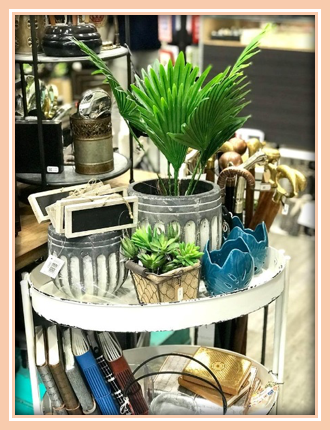|
A story for families of young children diagnosed with neurodevelopmental conditions. As a Psychologist in private practice, I regularly assist a paediatrician in diagnosing children and adolescents with Autism Spectrum Disorder (ASD) and/or Intellectual Disability (ID). Diagnoses are communicated to parents within a feedback session, where I outline the assessment findings, convey my rationale for diagnosis, its implications on their child’s functioning and provide specific recommendations that I believe will be beneficial for the child moving forward (whether it be educational adjustments, resources, additional services etc.). Although every feedback session is as unique as the individual being discussed, I often receive the same questions from parents of children with a recent ASD/ID diagnosis: “Does this mean my child will never thrive or become a functional member of society?” “Does this mean they will never get a job or be independent?” Depending on the severity of the neurodevelopmental disorder/delay, this may be a reality for a minority of families, yes. However, for a lot of children this diagnosis does not dictate whether they will be a fulfilled, functional and successful individual. I explain to parents that every child has the ability to learn and succeed. However, it is emphasised that these children may acquire new skills differently than their peers and at a different pace. I encourage parents to be mindful that we all have our strengths and areas that require development (for example social skills/communication for ASD) and that the appropriate recommendations will seek to maximise their child’s opportunity to participate in the world in a way that is meaningful to them. We discuss short-term goals with a reflection of their strengths, transition to increased independence and generalisation of learnt skills. With every diagnosis, my admiration of parents who transform their anxious energy into proactive and action-focused forces for their children never fades. It is common to see families initially overcome by a sense of hopelessness, or for some families grieving a future they initially envisioned for their child. In these moments, the anxiety and uncertainty can overshadow other information provided by professionals. My goal was to write a blog post that would instil hope in our families and what better way to achieve this than to hear from a family that has walked in their shoes. I also wanted our families to hear about a wonderful local business that supports and positively contributes to our local community, ‘Gracie’s Boutique’ in Point Cook. For this blog, I had the honour of interviewing Kerrie White (owner of Gracie’s Boutique) and her 17-year-old daughter Gracie White, who has a diagnosis of Autism Spectrum Disorder. I also had the pleasure of briefly speaking to Gracie’s younger sister Mia White. We spoke about Gracie’s journey from diagnosis to schooling, intervention, Gracie’s life now and goals for the future. Kerrie and I also spoke about Gracie’s Boutique and its wonderful contributions to our local community. The early years… Alike to the reports of most parents whose eldest child receives diagnosis of ASD or ID, Kerrie reported that she did not have much experience or knowledge of appropriate developmental milestones and behaviours in early childhood, however noticed “some warning signs” as Gracie was approaching 18 months of age. Kerrie recounted that following the birth of her younger daughter Mia and the family’s transition from North Sydney to Victoria, she approached Gracie’s new Maternal Health Nurse with concerns regarding her development and “felt that something wasn’t quite right”. Following the nurse’s observations of Gracie, she was referred for a diagnosis of Autism Spectrum Disorder and for multiple external services (Speech Pathology, Paediatrician, and Early Intervention). Kerrie stated that the family “got on the path pretty quickly” and commenced Speech Pathology and Early Intervention therapy immediately following referral. From Kerrie’s descriptions, it seems that the Autism Spectrum Disorder diagnostic process has evolved significantly over time. Kerrie reported that families were being placed on a 12-18 month wait list for a public diagnostic assessment in Regional Victoria (let alone Melbourne). Alternatively, families could pay a costly fee to have this assessment conducted privately with little to no wait time, however as a young family it was uncertain whether this was financially viable at the time. Kerrie noted that the diagnostic/intervention process was not the same for any one family and luckily Gracie was able to be assessed within 3-4 months via a Medicare claimable service. “We met a lot of people who were in the same age group as Gracie who later went on different paths with the same result”. When describing the diagnostic assessment itself, she relayed that it was conducted by a panel of professionals who would observe a child for the majority of the day. In hindsight, Kerrie described Gracie as “classically autistic” and she “ticked a lot of boxes” throughout the diagnostic process (spinning, several repetitive behaviours, echolalia, behavioural compulsions). The diagnostic assessment resulted in a diagnosis of Autism Spectrum Disorder provided by a Psychiatrist. “For us, it was the best outcome because at that point we said to ourselves ‘right now we know where we’re at, let’s move on and do whatever needs to be done for her’ ”. By the time Gracie was three years of age, she was participating in intensive early intervention therapy (otherwise known as Applied Behaviour Analysis (ABA) therapy) five afternoons a week in Gracie’s home therapy room (that the family constructed themselves). Kerrie stated that Gracie’s early behavioural therapy was managed and reviewed by a Psychologist who would collaborate with the family as co-therapists. Kerrie stated that early behavioural therapy and implementing PECS (Picture Exchange Communication System) at home “made a massive difference”, however it wasn’t always smooth sailing. Despite this, the family’s ‘take things one day at a time’ approach assisted them in coping throughout these challenging periods when Gracie’s behaviour escalated. Contrast to current funding systems, Kerrie detailed that families were financially responsible for any services required for their children, as there were no funding frameworks and scarce support groups when Gracie was young. She estimated that the costs of Gracie’s combined services reached an annual total of $40,000, which was a worthy but costly commitment for a young family. Kerrie reported that Gracie commenced 3-4 year old Kindergarten at a Montessori centre, which promoted Gracie’s independence and play based skills. At the time, Psychologists from the Department of Education conducted assessments with children in their Kindergarten environment to determine their eligibility for entry into specialist schooling. According to Kerrie, given the inconsistency of Gracie’s engagement throughout the testing process and scoring technicalities, she did not meet criteria for entry into a special school and commenced her first term at her local mainstream government school. Gracie’s first term in a mainstream school was described to be highly distressing for Gracie and the family. “What we thought we had in place was no longer working” “there were a combination of things that did not work for her” “at the time she was distressed and non-verbal”. “Her anxiety was manifesting in her behaviour, such as head butting walls and becoming overwhelmed”. On one occasion, Gracie reportedly refused to pass a wire fence when requested during a school excursion, as she was adamantly adhering to her family’s rule to not pass wire fences from her grandmother’s property. Following a taxing term, Kerrie obtained exemption from the Department of Education to enrol Gracie into Western Autistic School. This enrolment was conditional provided that the family moved into the local catchment zone and with no hesitation the White family moved their life to the Wyndham area in 2005. Gracie’s initial enrolment and experience at Western Autistic School was described to be positive. Kerrie reported that “It was a very safe environment” “it made me feel comfortable to have her there”. She recounted that although Gracie gained a lot of life skills from Western Autistic School, the family felt that Gracie would thrive from a specialist setting with more of an academic focus in addition to life skills. In 2009, Gracie was reassessed to determine her eligibility for enrolment into another specialist school. Despite being deemed unassessable as she “put her head through the wall” in distress, she was granted entry into Warringa Park School, commencing in 2010. “Moving to Warringa Park has been a fantastic move for Gracie...she loves it there and has lots of friends”. “They’ve developed a high level of behavioural management of students, an impressive security protocol and great ratios of teaching staff to students”. “They provide a diverse curriculum for the varying life skills that young individuals want to learn”. Kerrie reported that due to the significant amount of progress made, Gracie had stopped behavioural therapy in 2010. Kerrie’s advice for parents: 1: “Bring everything back to short term”. 2: “Be prepared to make change, it’s not ideal but it’s not the end of the world” 3: “Take a pause, take a breath” 4: “Celebrate the small wins and surround yourself with people that understand how significant the small wins are” 5: “You are your child’s best advocate, it can be overwhelming but it’s a cause worth fighting for”. Kerrie’s advice for parents: Gracie reported that Mondays at Warringa Park School consist of her favourite subjects (Literacy and Mathematics) and that the rest of the week is dedicated to work experience and other specialist classes. Gracie reported that she has previously participated in work experience at Caley’s Café, Gervey’s Kitchen in Tarneit, Vinnies and Red Cross. This term, Gracie stated that she is completing work experience at Plants Galore in Werribee South. She noted that she’s completing “Travel Ed” and recounted that she recently practised a train commute from Werribee Station to Flinders Street Station, a tram down to Albert Park, as well as tram to Brunswick. She reported that she also learns makeup, skincare and hair grooming/styling at school. Gracie expressed that she enjoys her hospitality classes and stated that she has mastered several recipes including pasta, pancakes, omelettes, spanakopita, apple cinnamon cakes, steak sandwiches, mac and cheese, burritos, curries and noodles (I was tempted to stop her from listing any more recipes before I started drooling, yum!). Gracie reported that she loves to cook and creates a number of dishes at home using the safe knife skills taught to her at school. When asked about her career aspirations and future goals, Gracie stated that following the completion of Year 12 in 2019 she would like to begin working at Plants Galore. Mia and Kerrie admiringly shared that Gracie is relentlessly dedicated to whatever goals she sets.  If the inviting storefront, charming pieces or ABSOLUTELY irresistible homewares (I’m serious, you won’t leave there empty handed) isn’t reason enough to visit Gracie’s Boutique, allow me to briefly capture its involvement with our local community. On the occasional Saturday, Gracie will work at Gracie’s Boutique. She reported that she films many promotional videos for the store on social media, steams clothes, creates stickers and stamps store bags. In addition to her many talents and achievements, Gracie creates the beautiful artwork that’s printed on greeting cards that are sold at Gracie’s Boutique (pictured in this blog post). Kerrie reported that Gracie’s passion for drawing and birthdays is what birthed the idea of her greeting cards. When Gracie isn’t at school or working at Gracie’s Boutique, she enjoys dancing, shopping and is a member of ‘Team Strikers’, a bowling team in her local area. Despite her achievements, it was noted that Gracie still experiences challenges from time to time. Her reported best way of coping on days when she is angry, confused or when she doesn’t understand something is to “take a deep breath”. Gracie was a vivacious and hilarious young woman who was a pleasure to interview. The photo of the two of us at the top of this post is a selfie that Gracie took! (Permission provided by Gracie’s mother to post photo).
This story is a shining example of how the perseverance and dedication of a family paired with the right intervention can make a significant impact on a young person’s life. I’m looking forward to hearing of Gracie’s future notable achievements to add to her successes. Thank you to Kerrie, Gracie and Mia for their time and for sharing their inspirational journey. Comments are closed.
|
Categories
All
|
Hopscotch & HarmonyAt Hopscotch & Harmony Psychology, you can expect compassionate care and evidence-based guidance on your journey to wellness.
With clinics in Werribee and Belmont, as well as providing online counselling to clients who live throughout Australia, our dedicated team of psychologists and dietitians are committed to providing support to children, teenagers and adults. With a focus on understanding your unique needs, we offer tailored solutions to foster growth and resilience. Trust in our experience and dedication as we work together towards your well-being. Welcome to a place where healing begins and possibilities abound. |
Our services |
Contact usHopscotch & Harmony
Child, Teen and Adult Psychology Our Locations:
WERRIBEE: 1/167-179 Shaws Rd
BELMONT: 92 Roslyn Rd AUSTRALIA-WIDE: Online counselling |
Hopscotch and Harmony respectfully recognise the Aboriginal and Torres Strait Islander people as the first Peoples of the continent now called Australia.
We acknowledge the Bunurong and Wadawurrung people of the Kulin Nation, the traditional owners of the land on which we work, and pay our respects to their Elders, past, present and emerging.
© 2024 Hopscotch and Harmony Pty Ltd





 RSS Feed
RSS Feed
